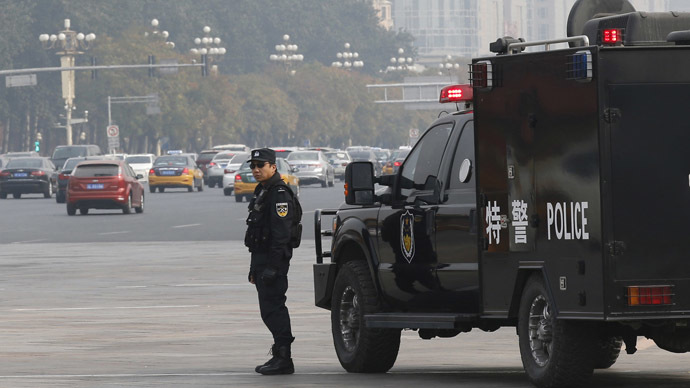China to film interrogations of suspects in push to halt police brutality

Chinese police will be required to film and record all interrogations in criminal cases to increase transparency, Xinhua reports. The new law states that the cross-examination process must be carried out fairly and the rights of suspects are respected.
The Ministry of Public Security introduced the law, while there are also plans to make the police more accountable, the Xinhua news agency said. The new decree also wants processes involving evidence gathering to be improved.
The law also includes a plan to improve evidence gathering and the accountability of the country’s 2 million police officers when handling cases.
Human Rights Watch has been critical of the Chinese authorities, saying that the police dominate the criminal justice system, while rather than gathering evidence; they prefer to rely on the confessions of defendants.
“Weak courts and tight limits on the rights of the defense mean that forced confessions under torture remain prevalent and miscarriages of justice frequent,” the organization stated on its website.
China to hold police officers accountable for erroneous cases for life http://t.co/PJXJTBdA7Mpic.twitter.com/zmxX17Nwtg
— China Xinhua News (@XHNews) February 15, 2015
China has been hit by a number of scandals involving wrongful convictions over the last couple of years.
In December, the parents of a teenager who was executed after being found guilty of a rape and murder he did not commit in 1996 in Inner Mongolia were compensated. The Inner Mongolia High Court overturned the decision and gave his parents two million Yuan ($322,000) to try and make up for their loss.
Since taking power in 2012, the Chinese president Xi Jinping has launched a number of anti-corruption drives to try and clean up amongst other things, the country’s legal system. He wanted to carry out legal reforms that would reduce false charges and free the courts from government interference.
Video:how China's police treated a group of teachers on strike in Henan province https://t.co/RDRZxJSUxL#humanrightspic.twitter.com/v2OFmyjgGQ
— SpyEast (@SpyEast) February 14, 2015
This is not the first time that China has tried to introduce laws to improve the transparency of the country’s interrogation system.
In November 2013, the Supreme People's Court said in the guidelines issued that evidence must not be extracted through the practices of torture, while cases must be decided by judges, without interference from local government, the South China Morning Post reported.
"Extracting confessions through torture - such as the use of cold, hunger, drying, scorching, fatigue and other illegal methods to obtain confessions from accused - must be weeded out," the document said.












